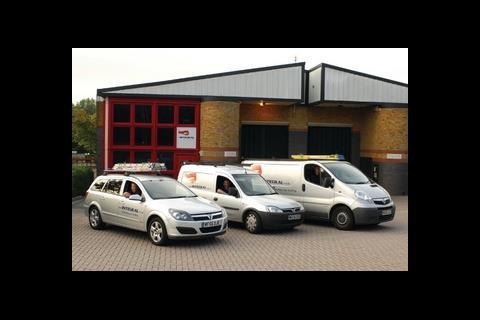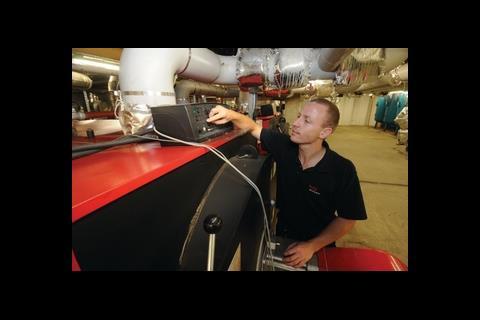Corporate social responsibility offers personal as well as professional rewards
Putting corporate social responsibility (CSR) at the heart of your business will help you to win more contracts as well as win hearts and minds. That’s the belief of Don Urquhart, the director of CSR at Integral.
Urquhart joined the property maintenance services provider in March 2008 as director of health and safety, a position he retains alongside his newer post. A degree of client pressure led Integral to create the role, and giving it to Urquhart brings the firm’s health, safety, environmental and CSR concerns under one umbrella.
“My full job title is health and safety and environmental and corporate social responsibility director. I have business cards 7ft long,” jokes Urquhart. “It’s all part of the company trying to consolidate and join up its thinking.”
He has written Integral’s first CSR policy, which promises that the company will “behave fairly and responsibly, contribute to economic development while improving the quality of life for staff as well as local communities and society.”
On top of this, the environmental policy includes pledges on reducing waste and water consumption and improving energy efficiency. If it all sounds like common sense, Urquhart is quick to state that Integral hasn’t just jumped on the CSR bandwagon.
Is there, though, a convincing business case in the current economic crisis for “nice to have” but unlegislated initiatives? “CSR is a voluntary code; it’s a lot of nice-to-haves,” he admits. “However, over the past few years clients have started to take it seriously. They want to know what you’re doing about procurement and waste and what you’re doing to cut your own emissions. They want to know your CSR policies at a management level. They want to know if you’re being as sustainable as possible. And, if you aren’t, you could find yourself missing out on work.
“The root of CSR is, arguably, simply adopting good ideas around you. You are coerced into following a trend that others have adopted. But I don’t see it as bandwagon-jumping, more a way for people to reflect and to ask themselves what they’re doing.”
PEER PRESSURE
Urquhart says that Integral now has one of the lowest carbon emissions levels in Britain for a company its size. He attributes this to making emissions the centre of its environmental policy, and also to a bit of peer pressure. “I’m no petrol head,” he says. “I own a Prius hybrid and I think a few more have been spotted here since I joined. A car is a car, it gets you from A to B, nothing more, and perhaps some of my attitude has rubbed off.”
It’s an example of the value of creating the post of director of CSR. “I have a team but I act as a figurehead in a fashion. The key is accountability. You have to be accountable for what you’re doing as a business. Clients are going to ask you and if you have a person to answer these questions and to bring some of these disparate threads together, it can definitely make you more appealing.”
The CSR policy goes outside Integral’s nationwide network of offices, of course. Urquhart is working on a partnership with the charity Barnardo’s to help young people into careers in engineering. As a “Barnardo’s boy” himself, it is a project close to his heart, and it could help to lessen the looming skills gap. “It has taken eight months to put the scheme together but it could be a way to help young people and have a positive impact on the industry at large,” he says.
One of Integral’s offices has breast cancer awareness days each October, and this is going to be rolled out across the company. A small gesture but a “worthwhile one”, according to Urquhart.
While he doesn’t see a time when CSR will be legislated, Urquhart says businesses must take action or be left behind. “If I were to offer any advice, it’s this: look at what you do and think about what you could achieve by investing some time and resources into a CSR programme.
“I would look at what you can impact on directly – energy, lighting and water – and then take stock of the supply chain. Keep to what you know and understand in the initial phases, and don’t spread yourself too thin.”
Source
Building Sustainable Design























No comments yet